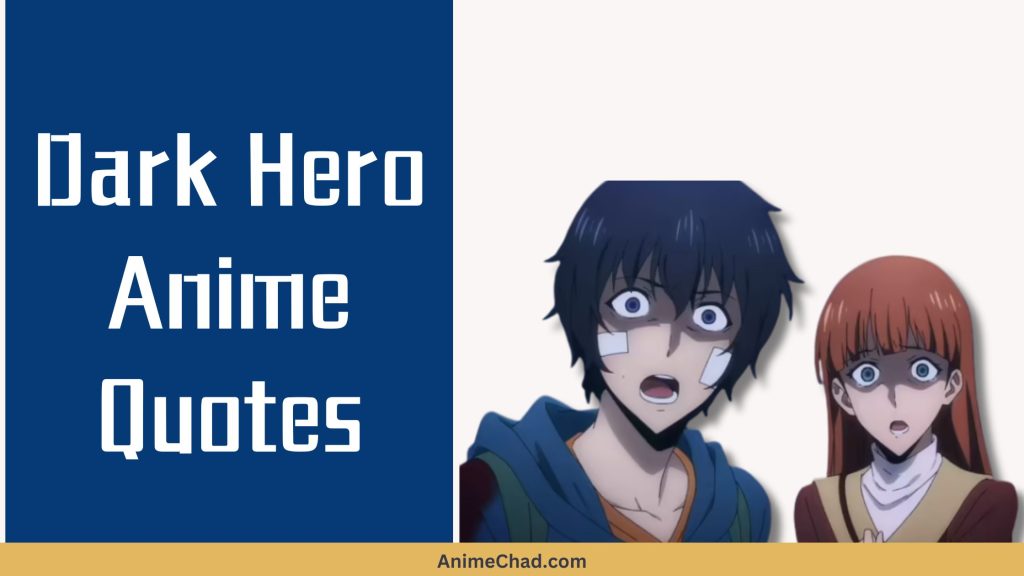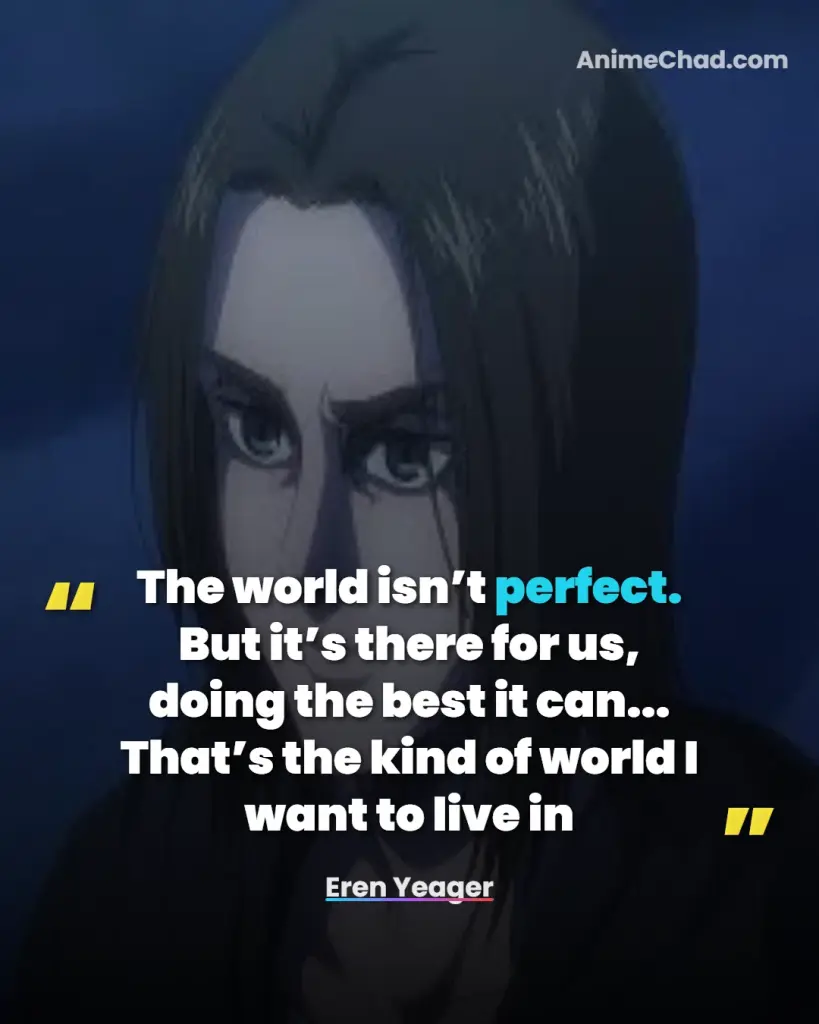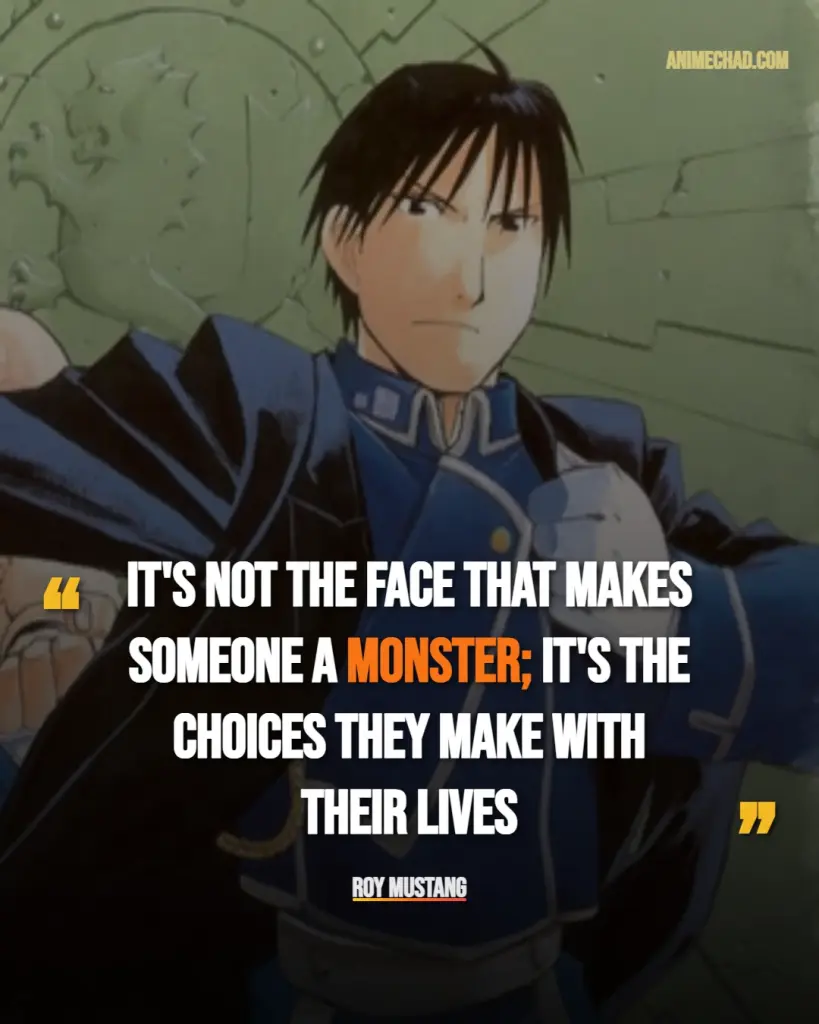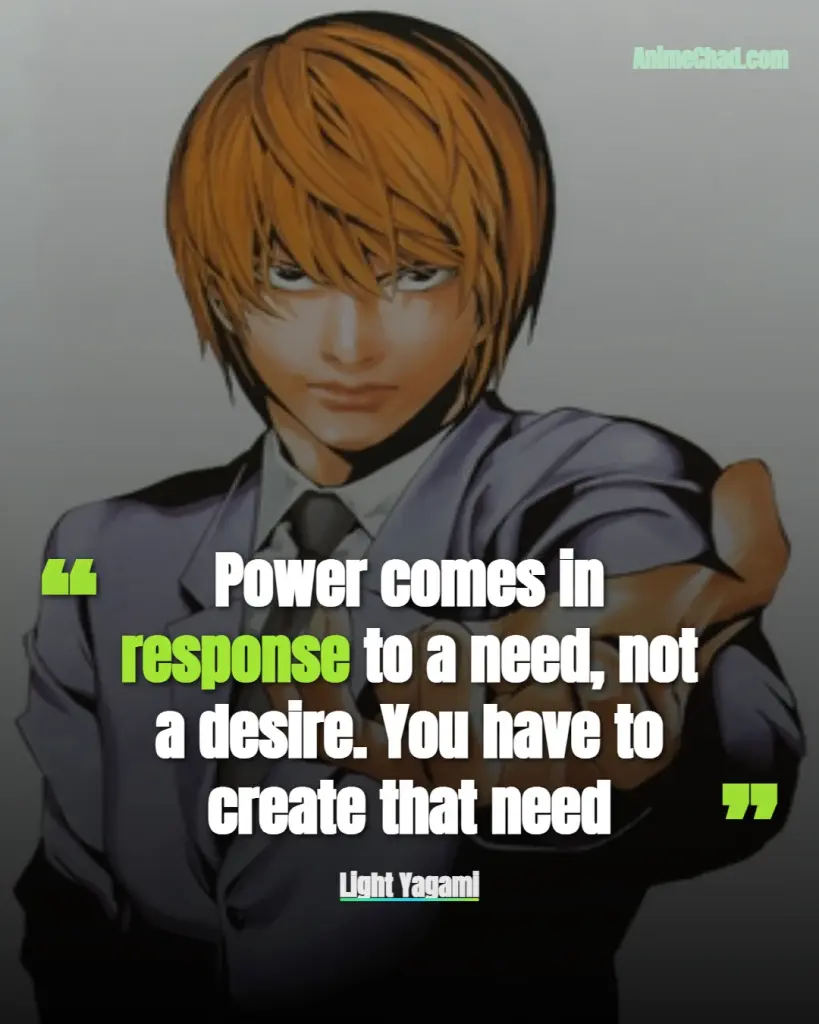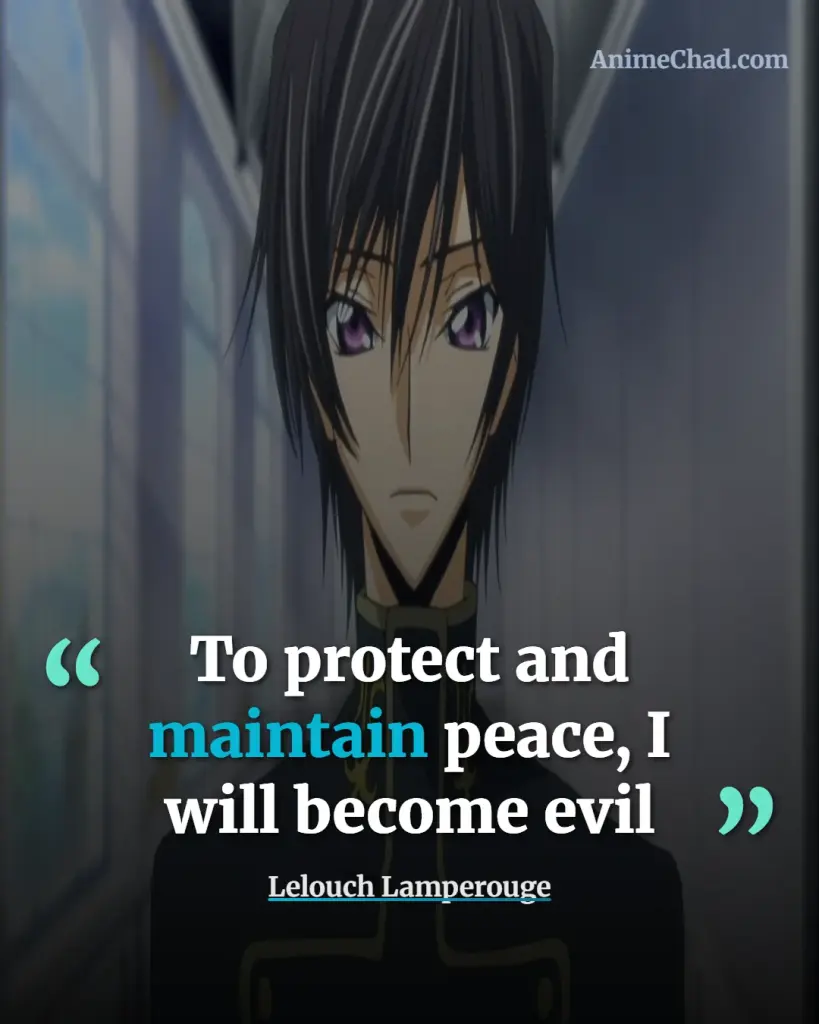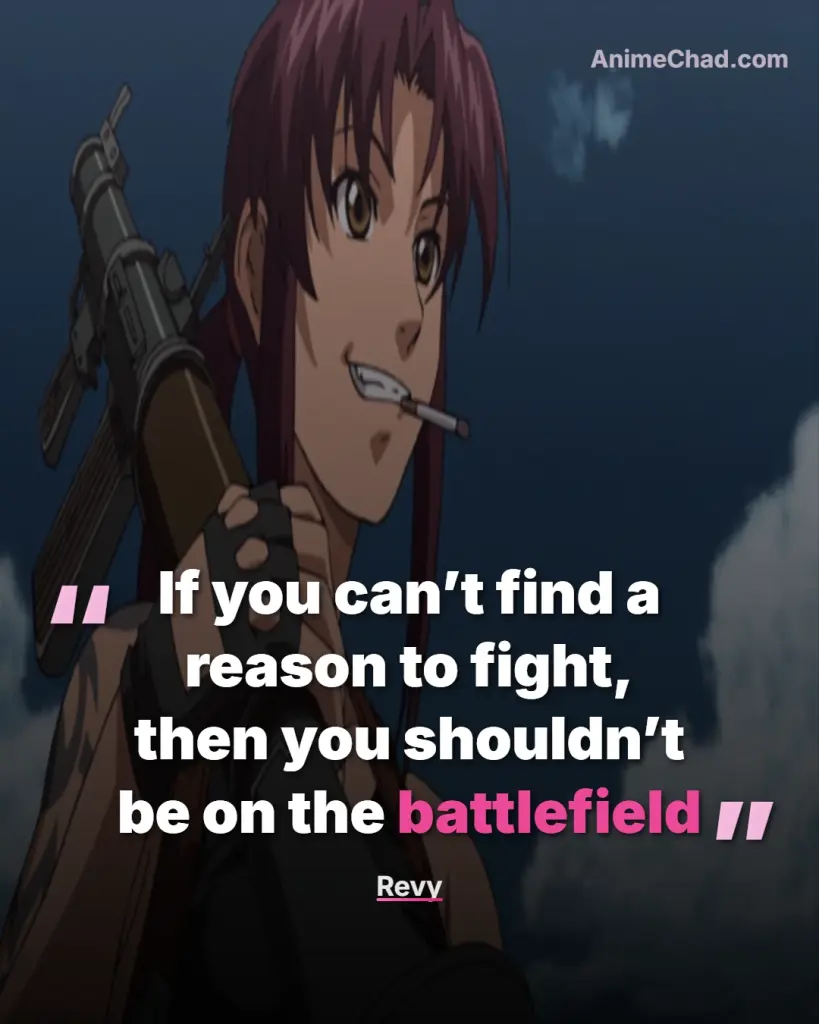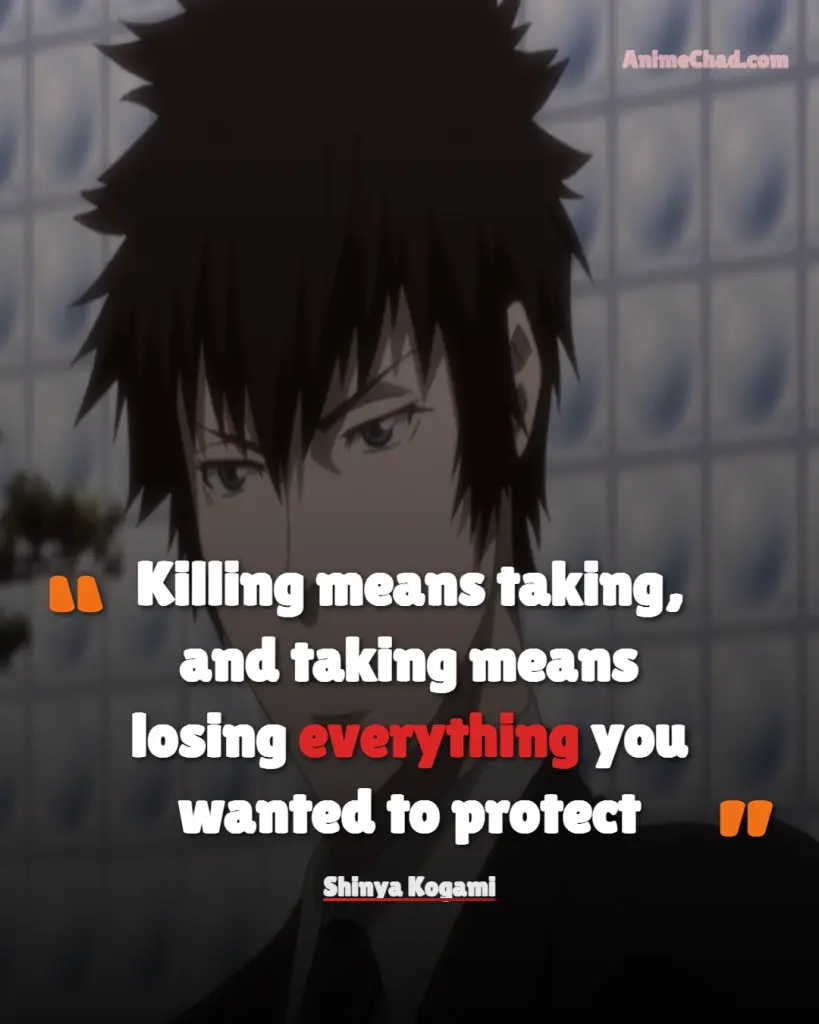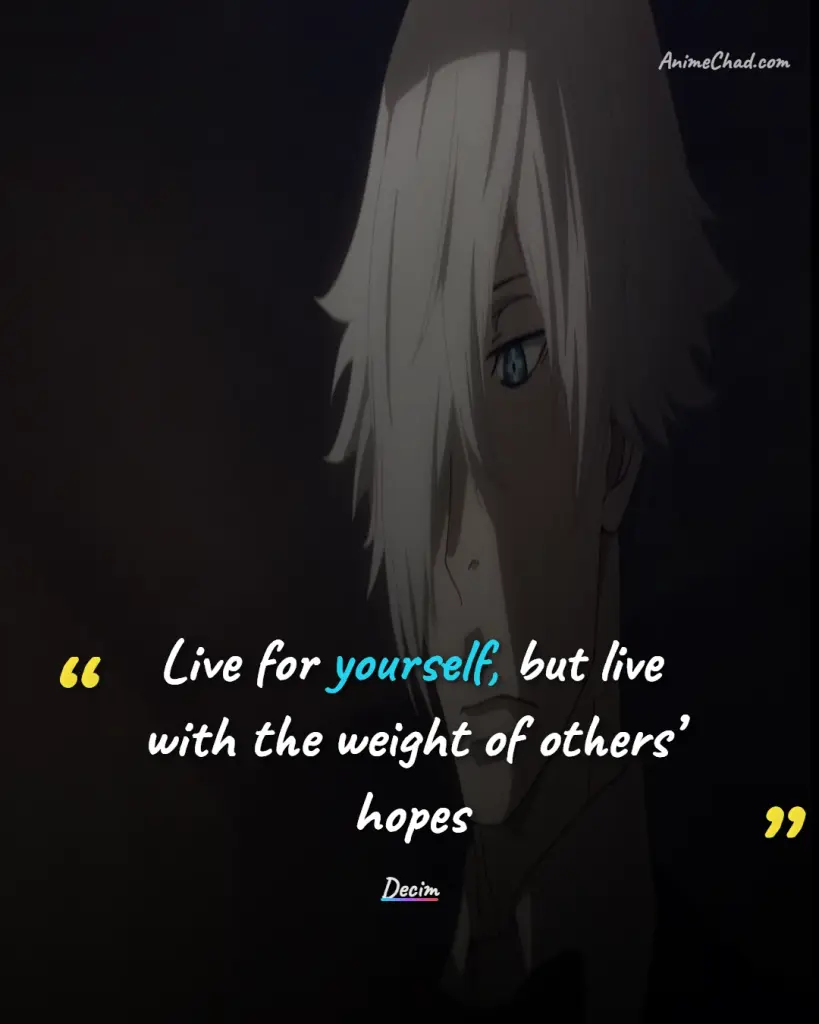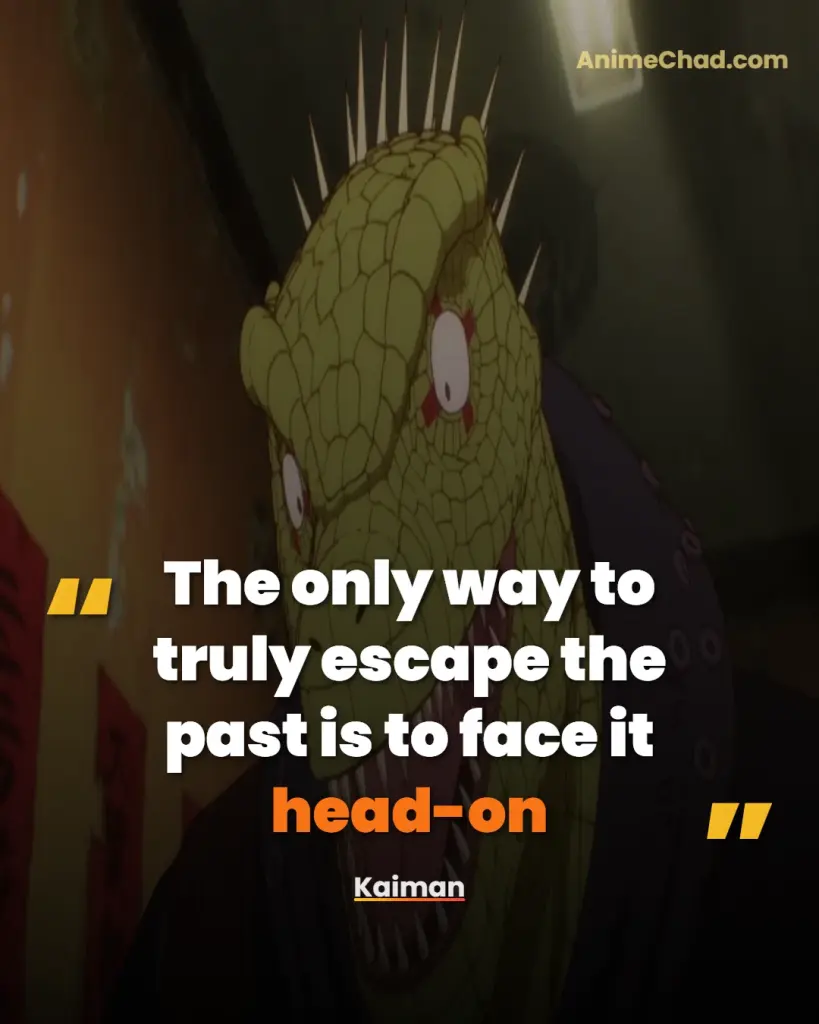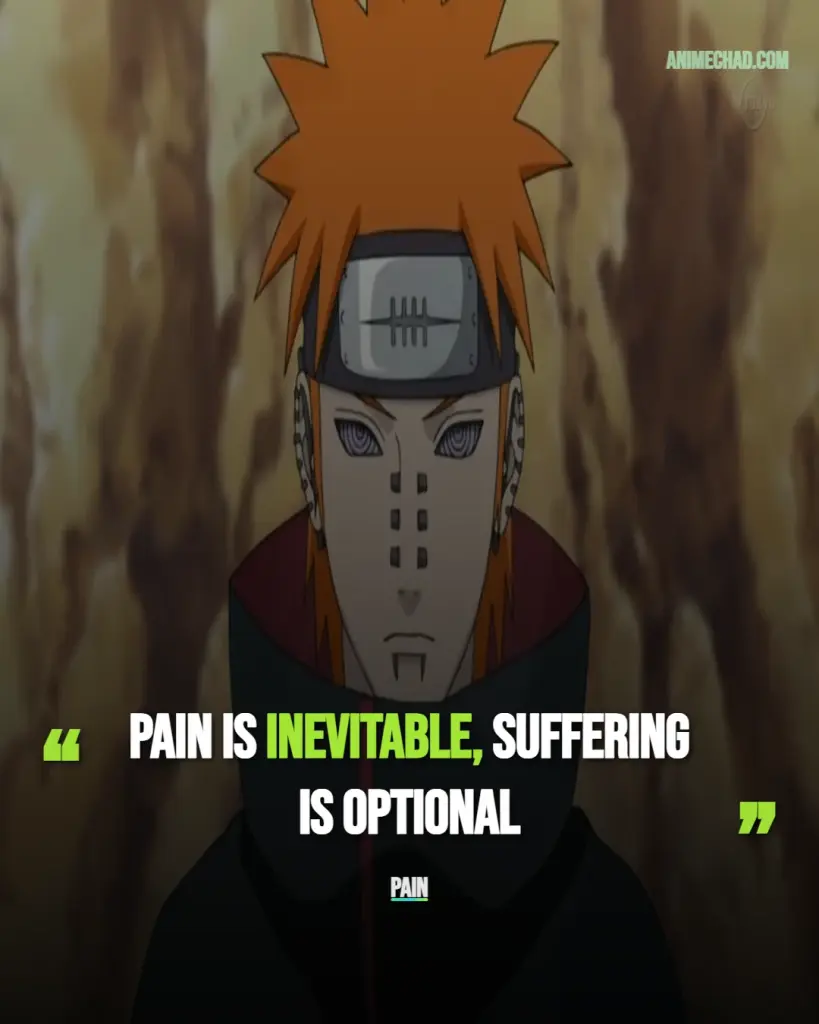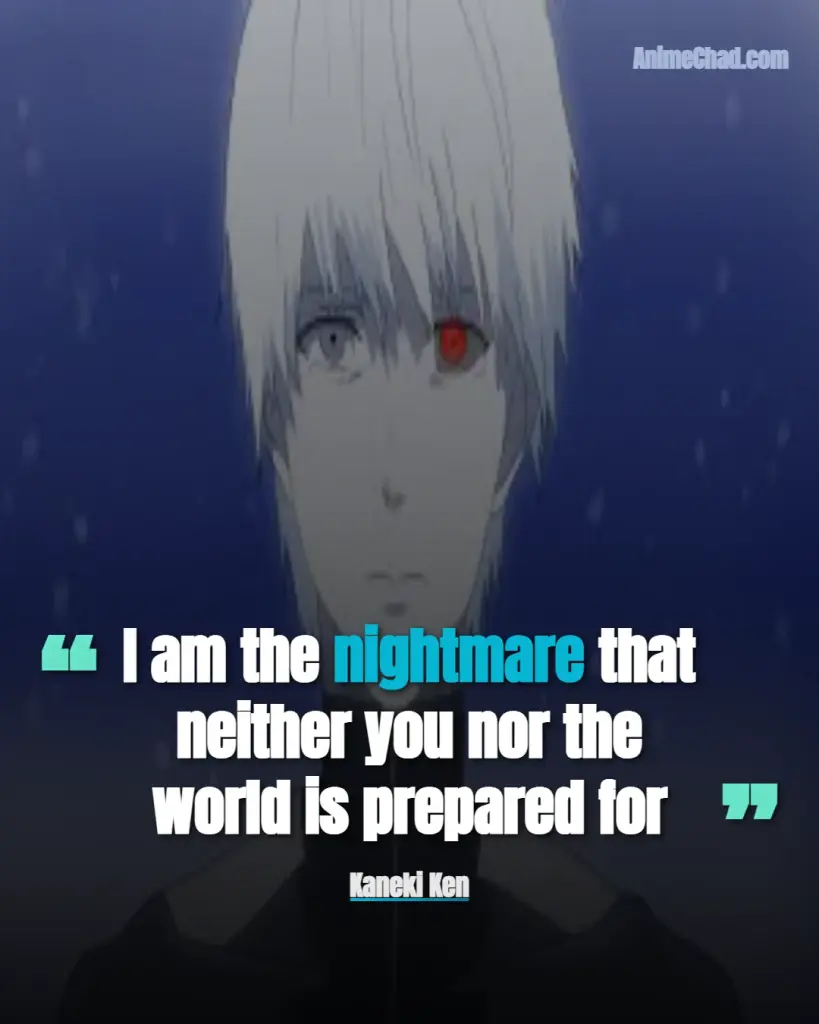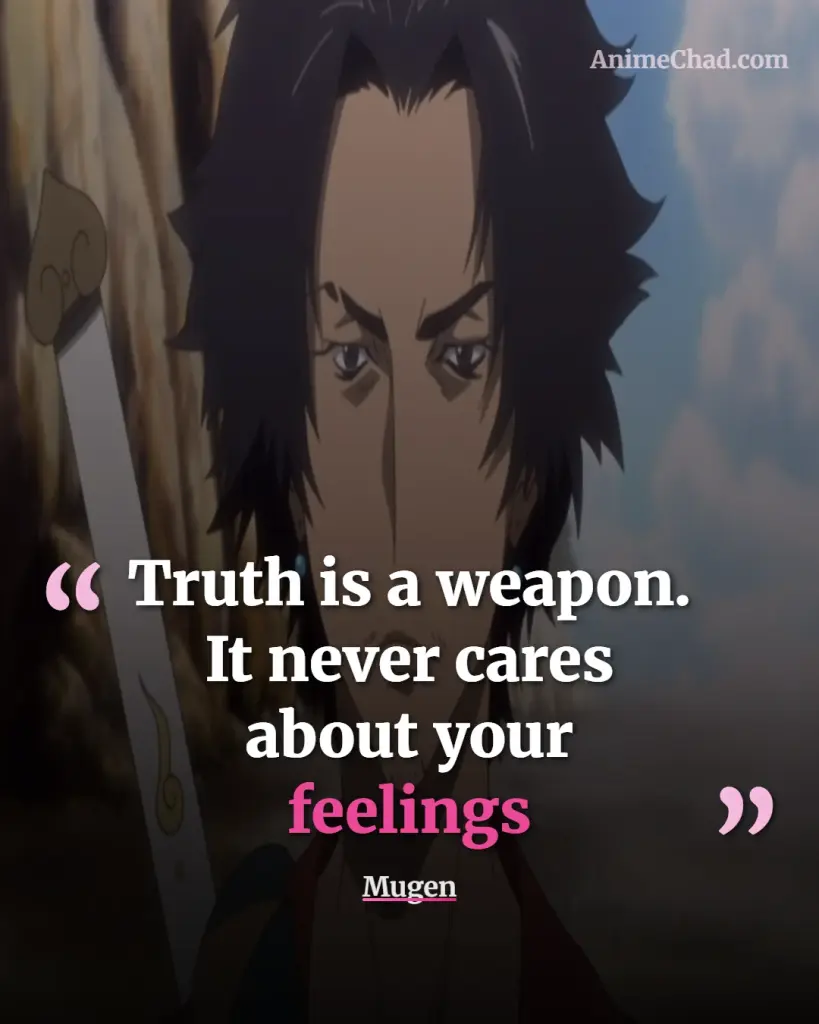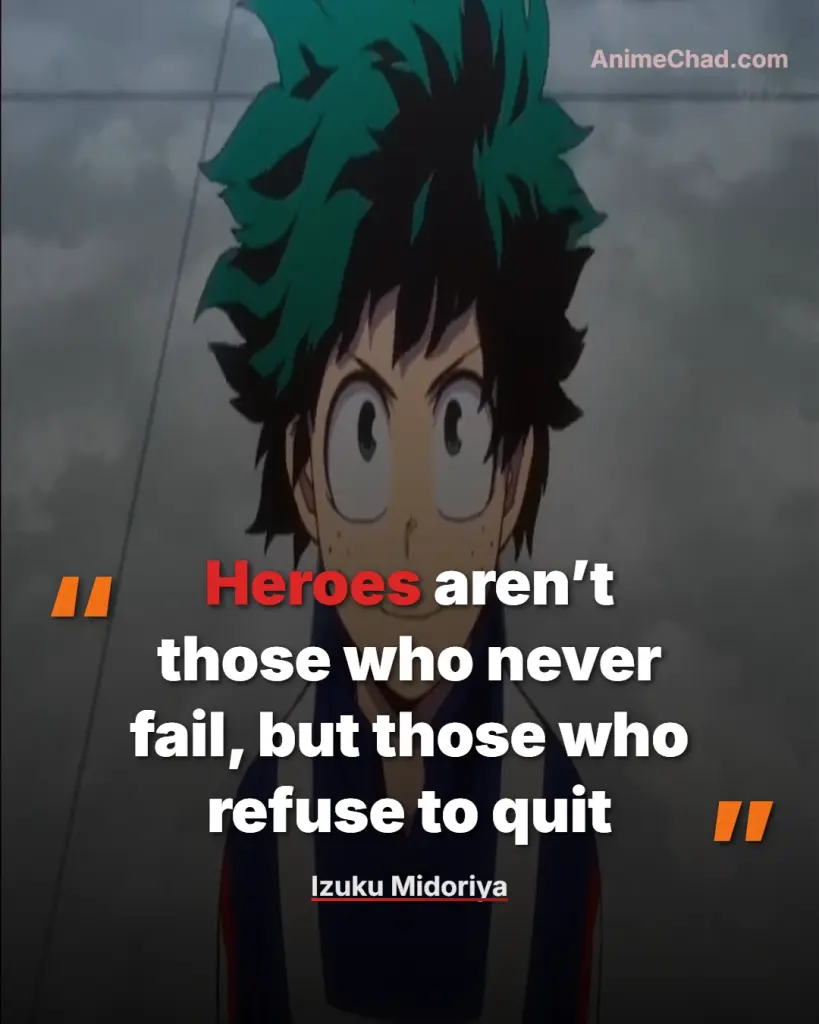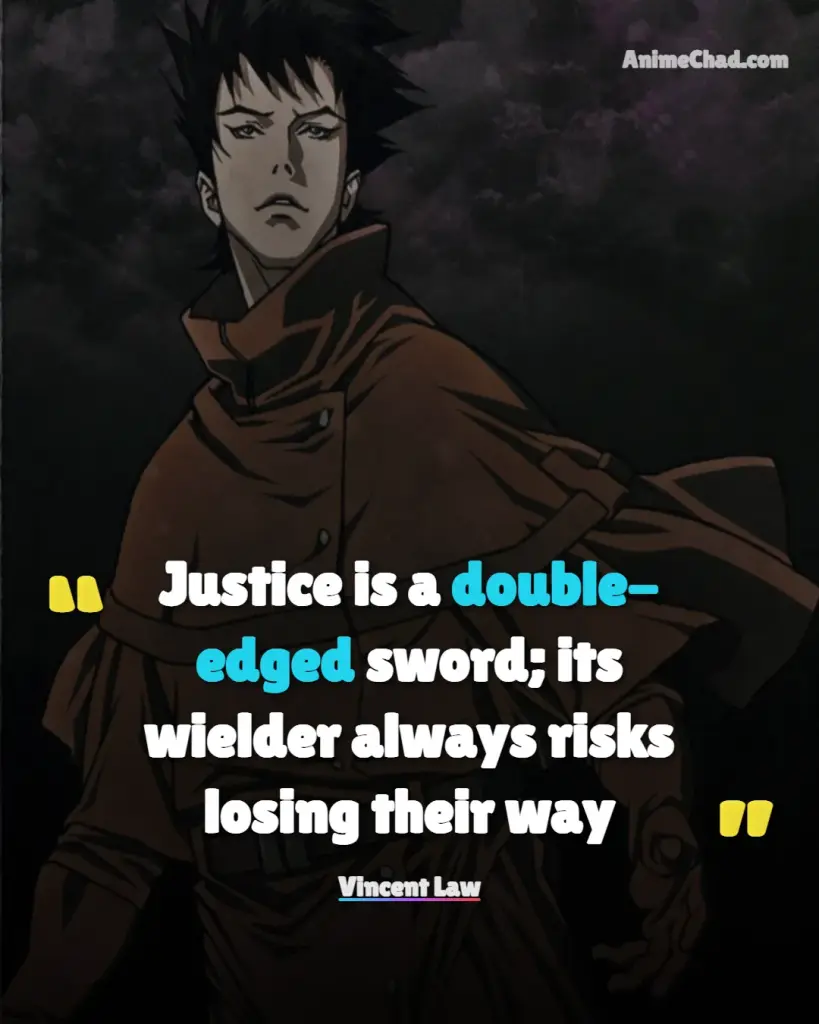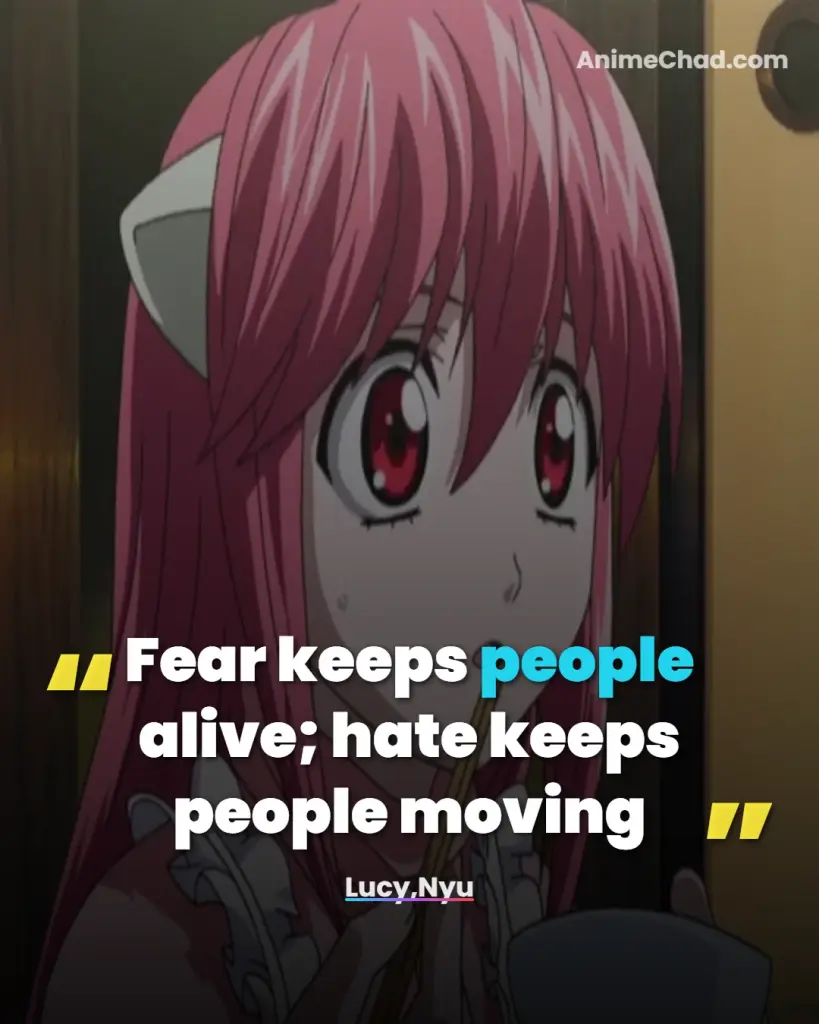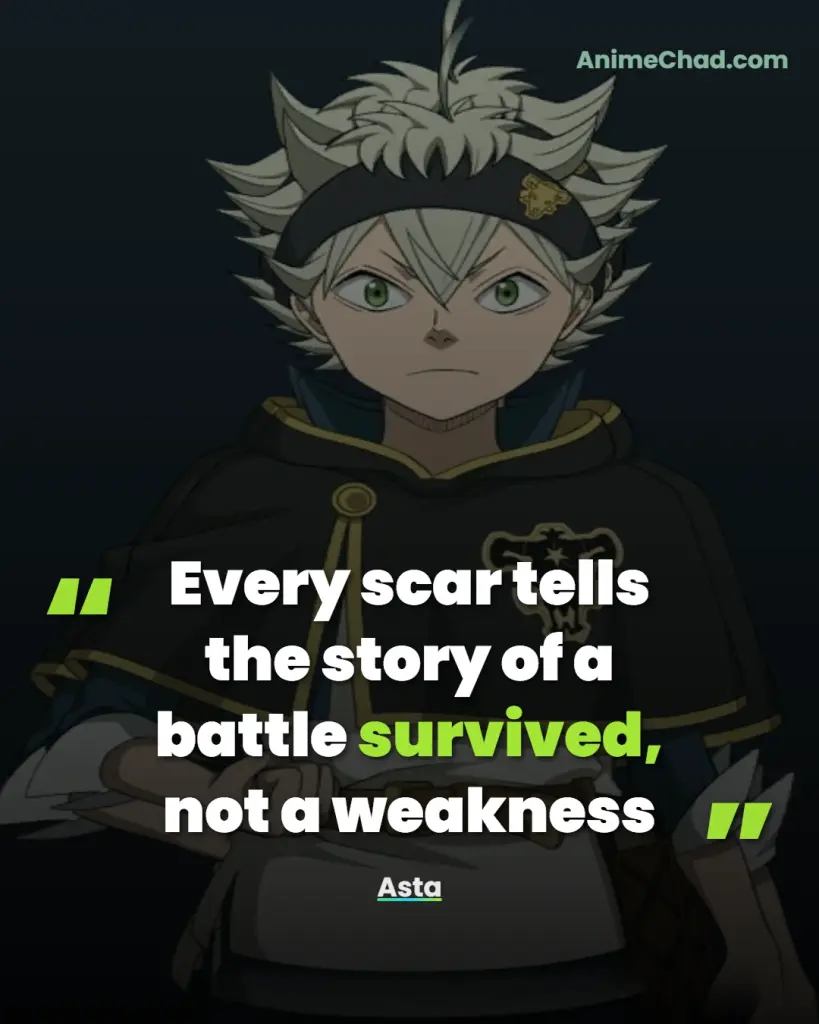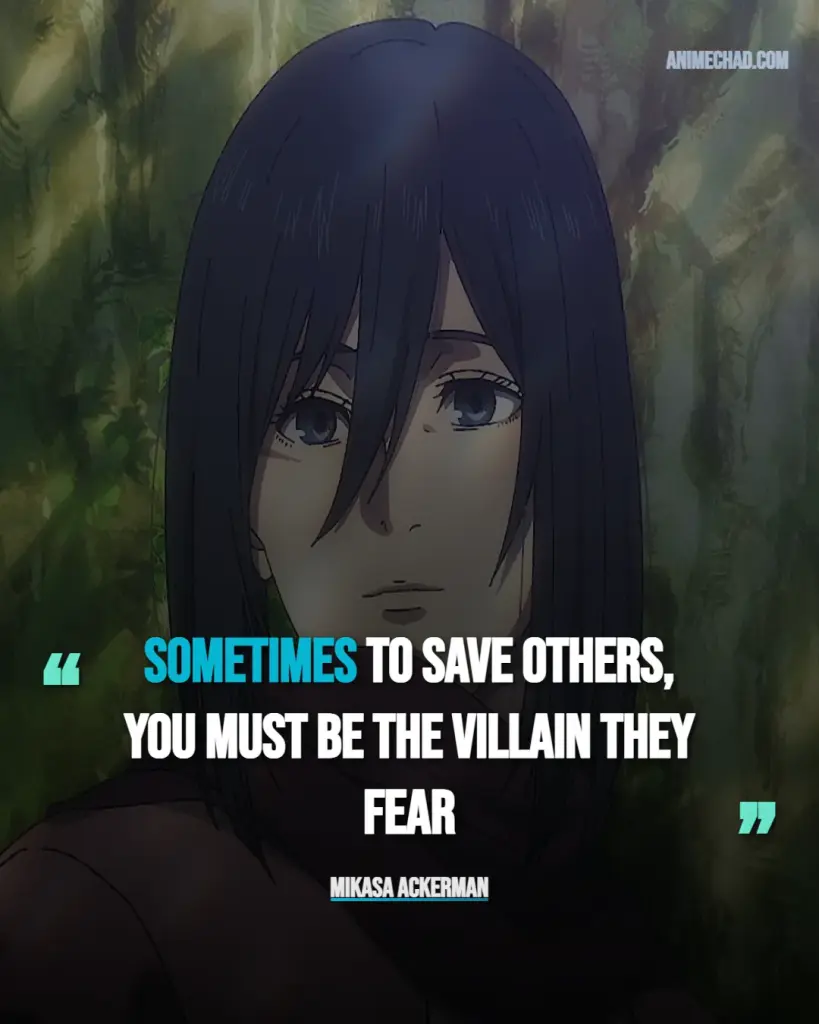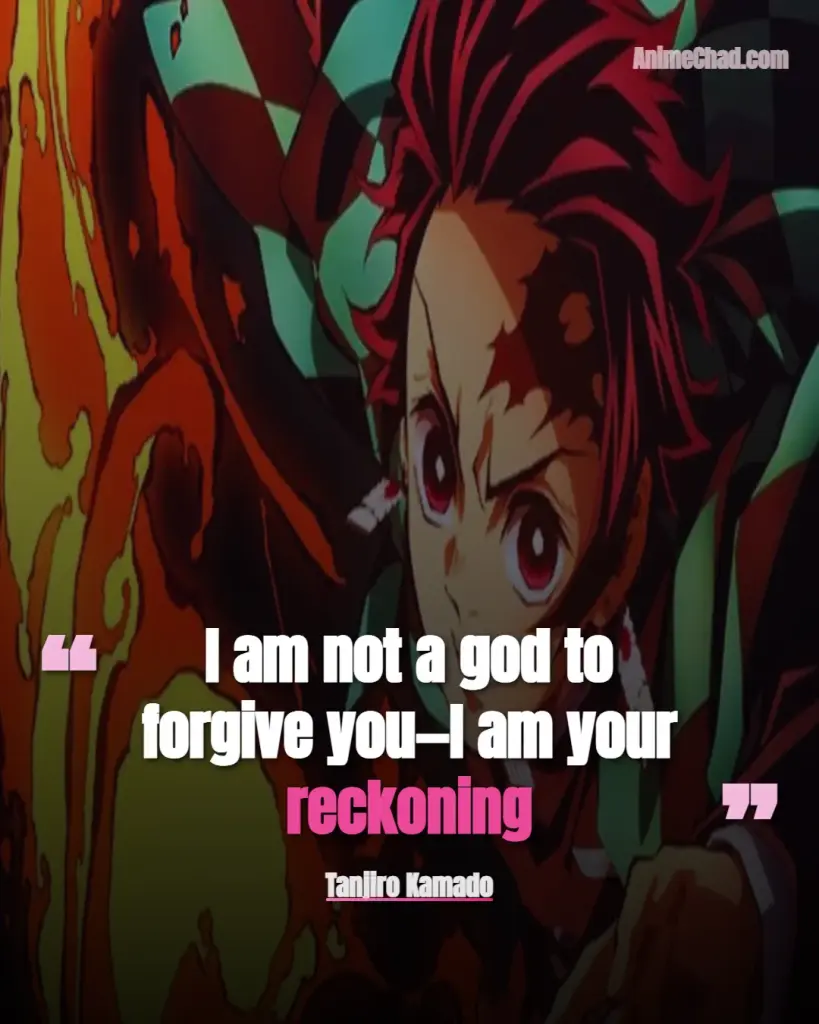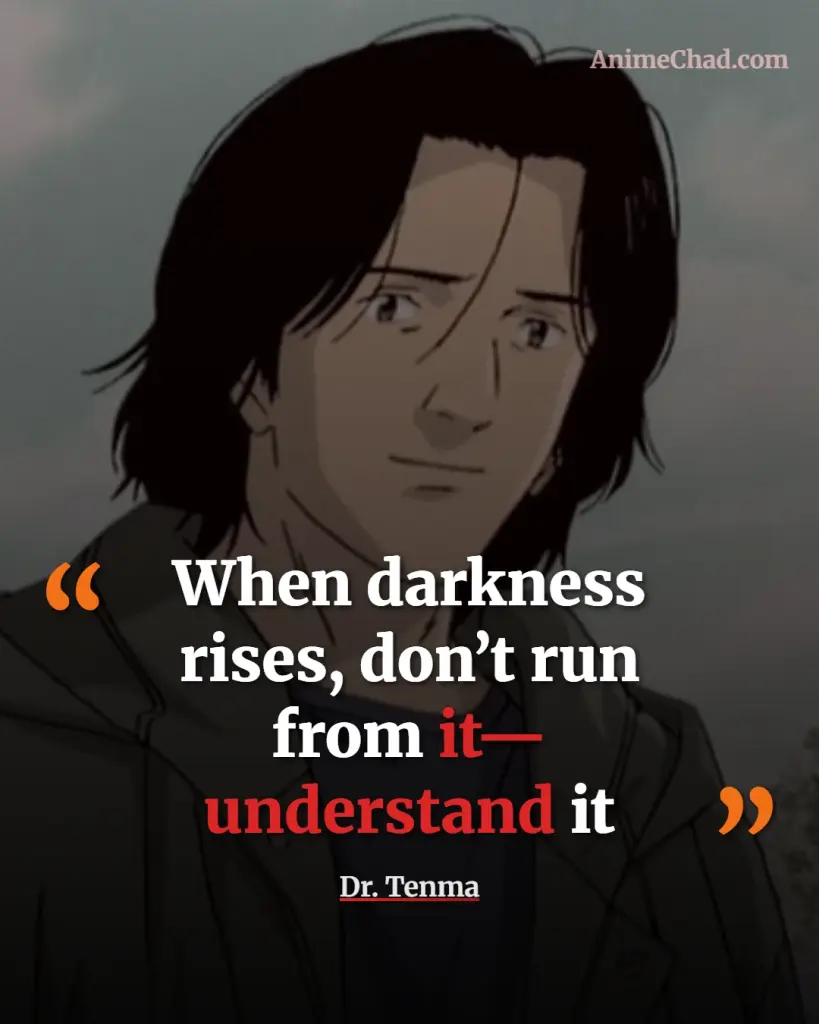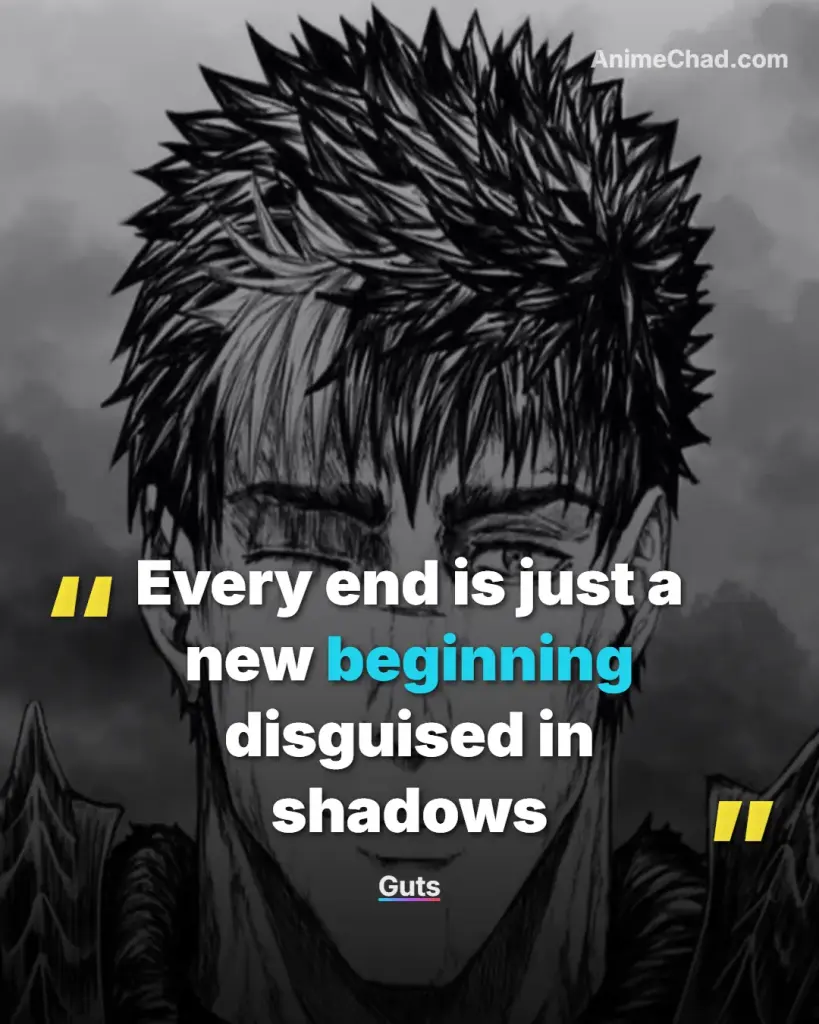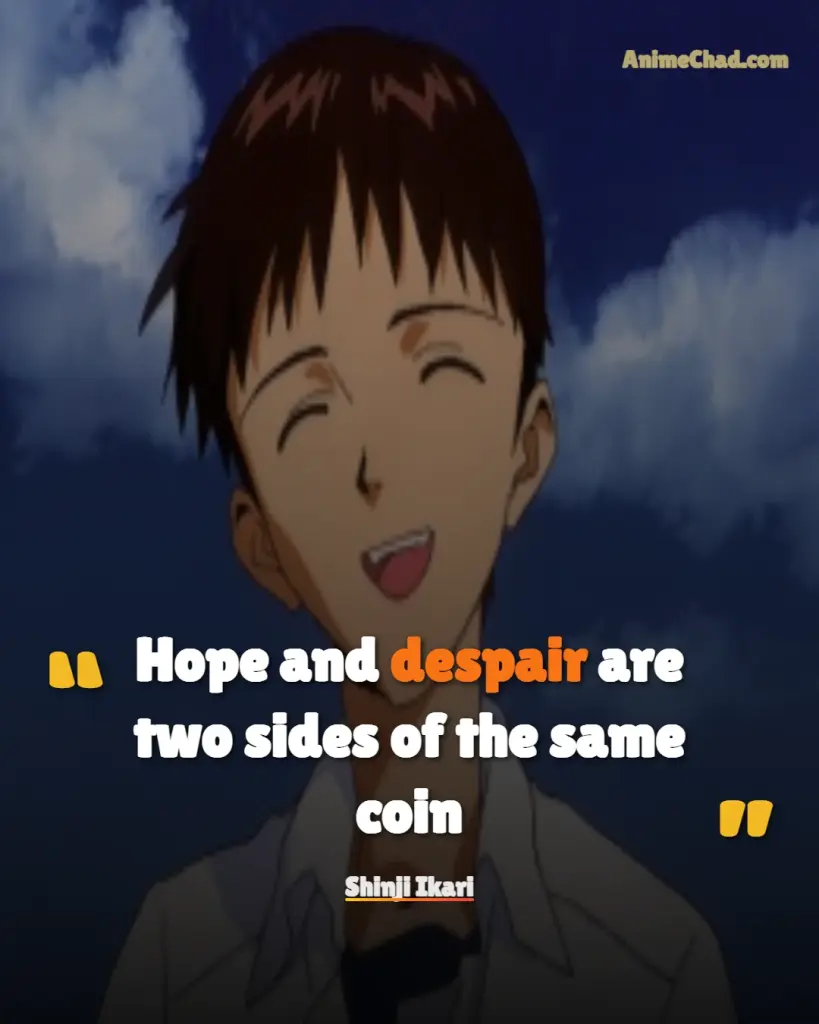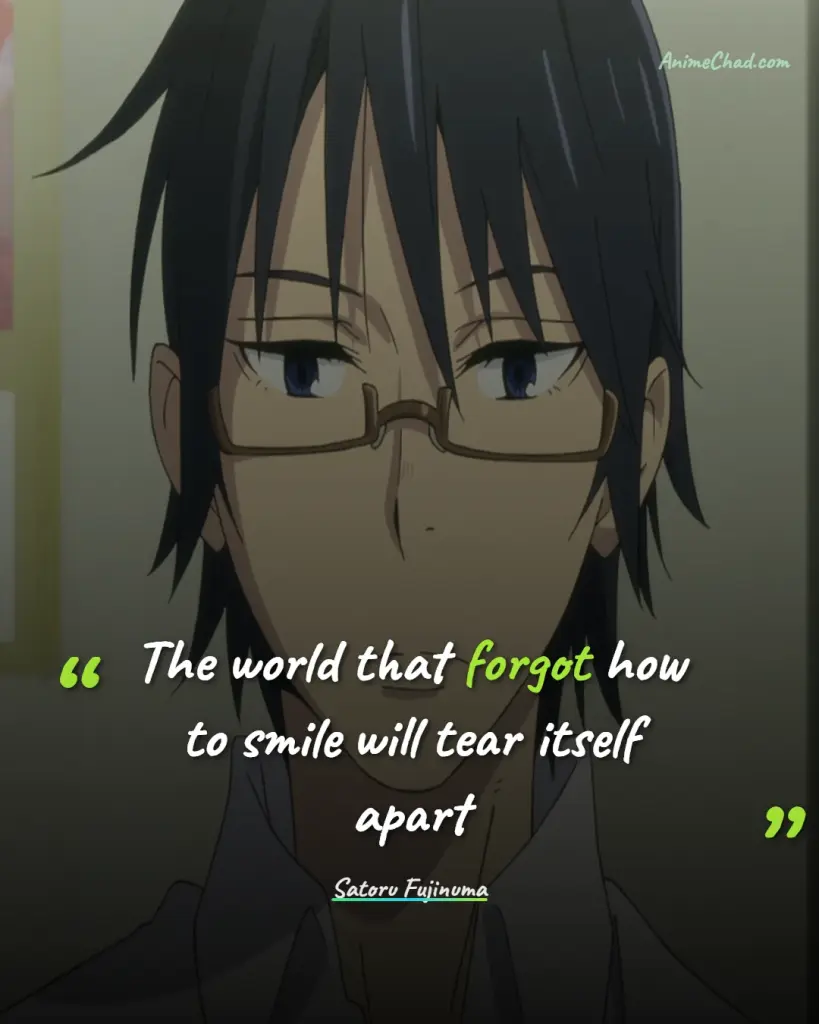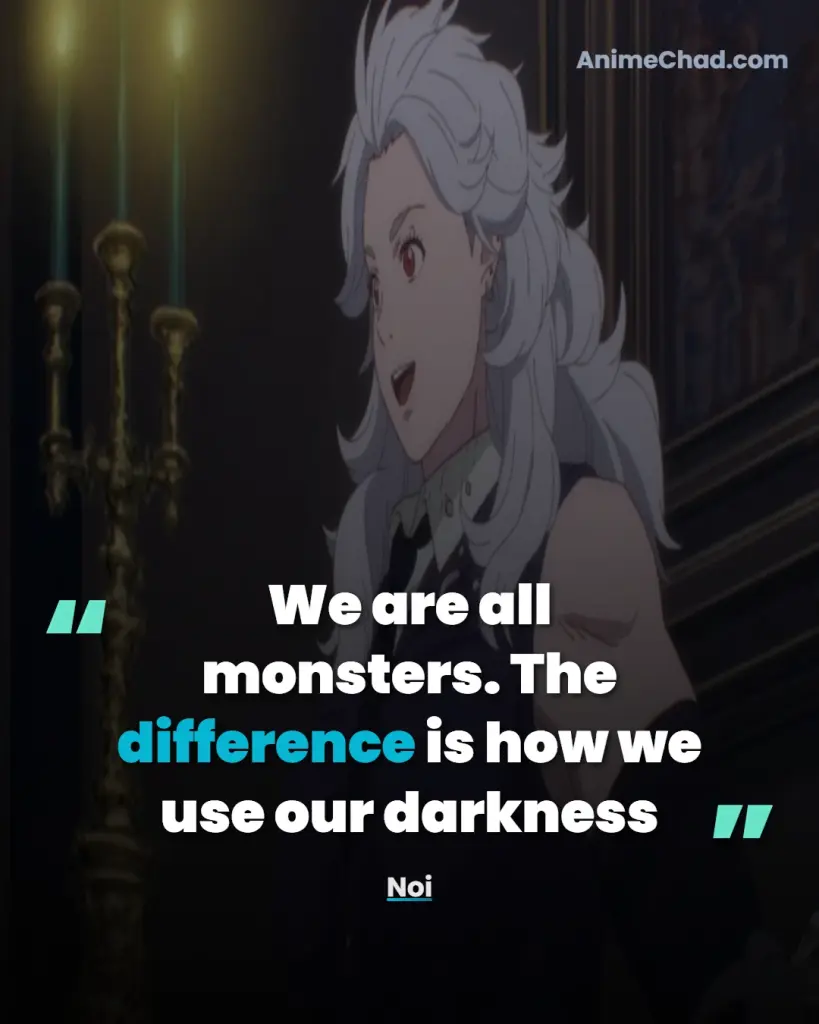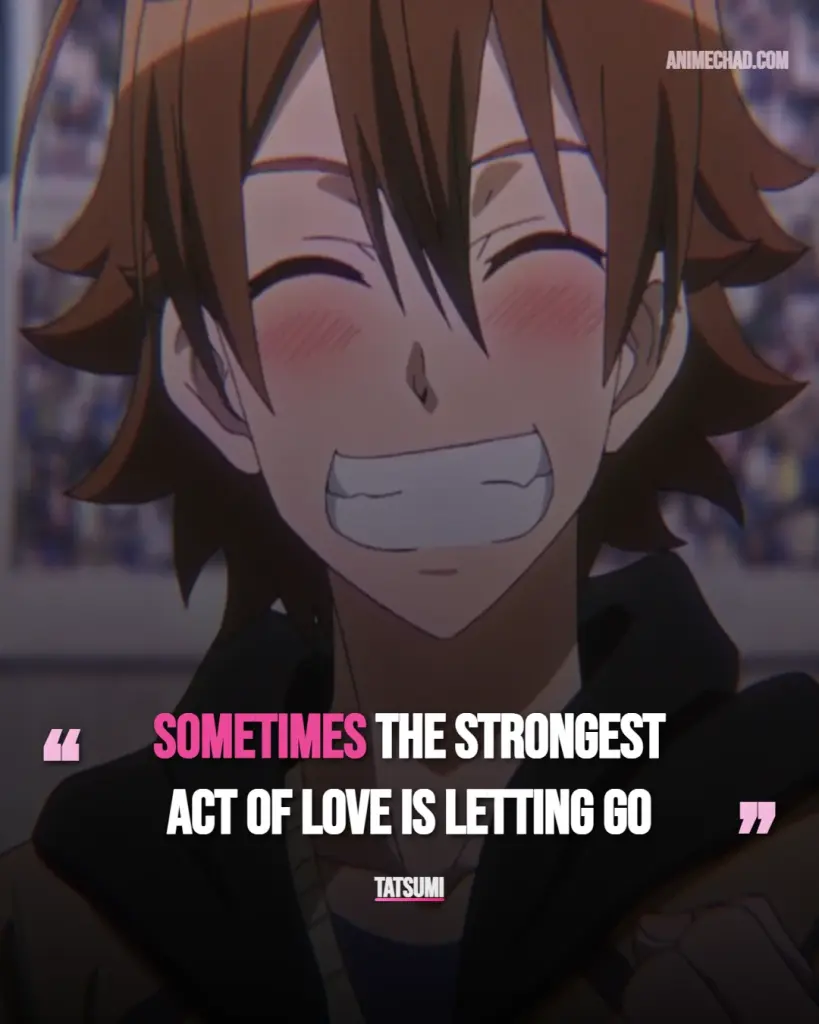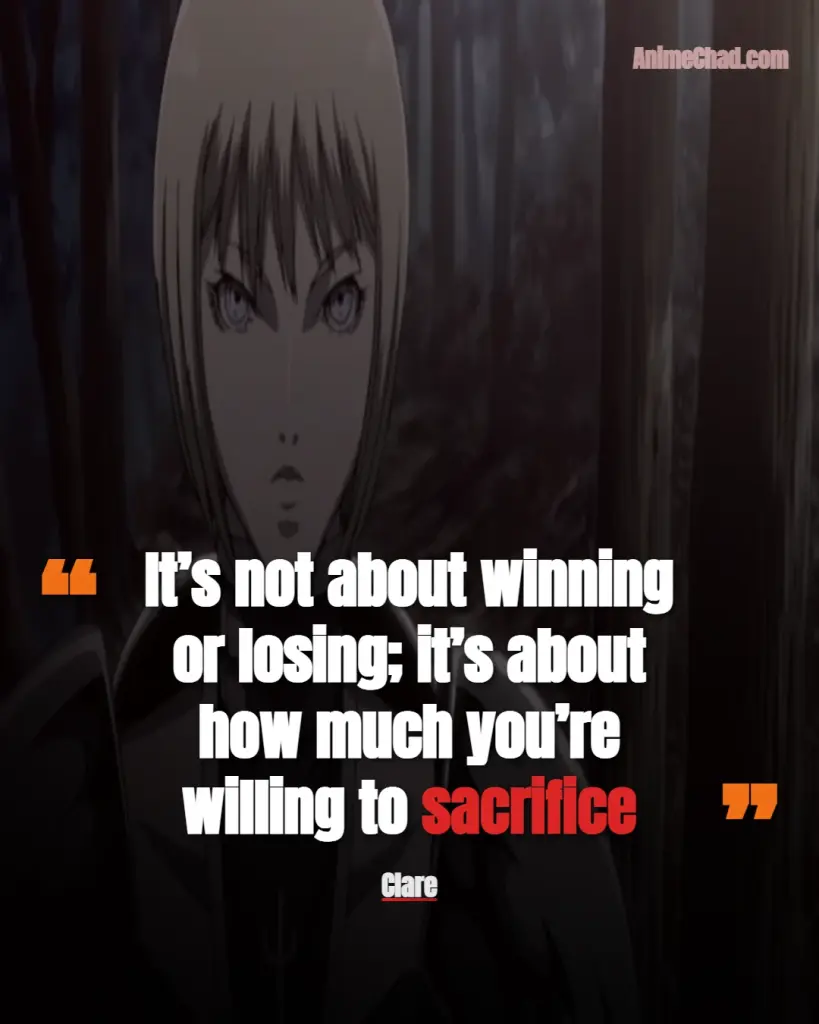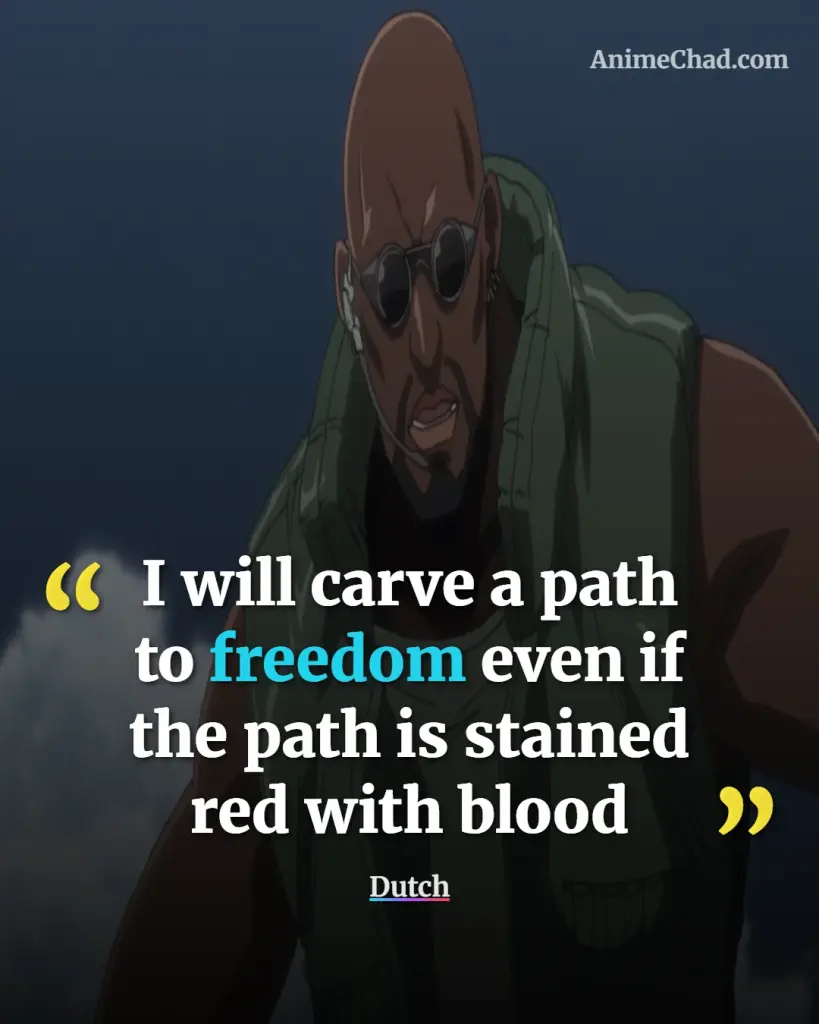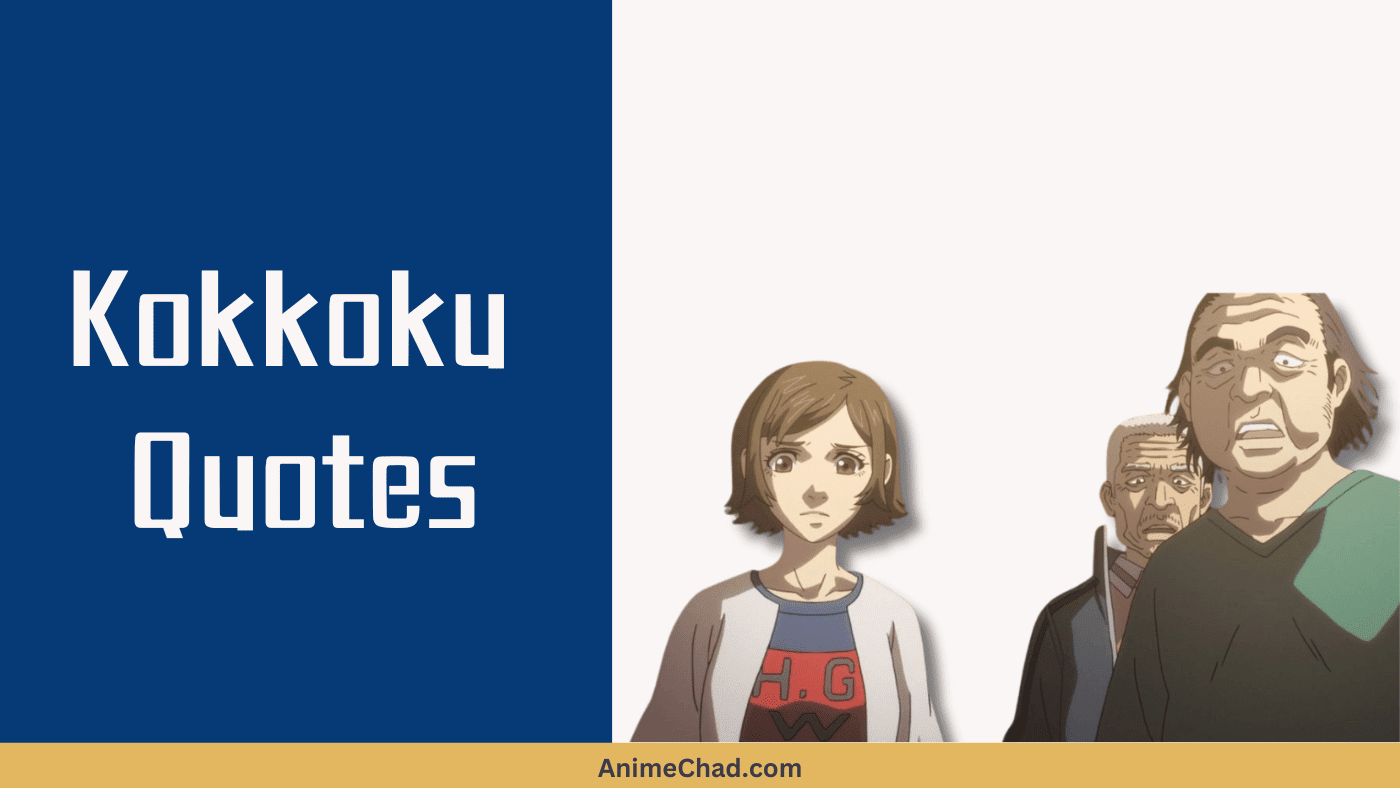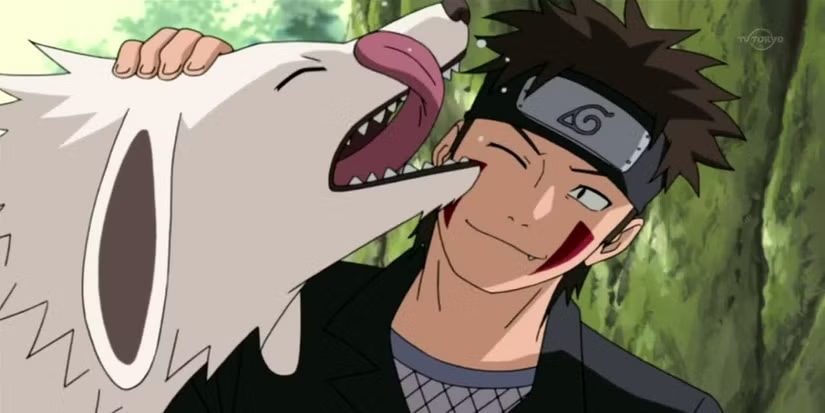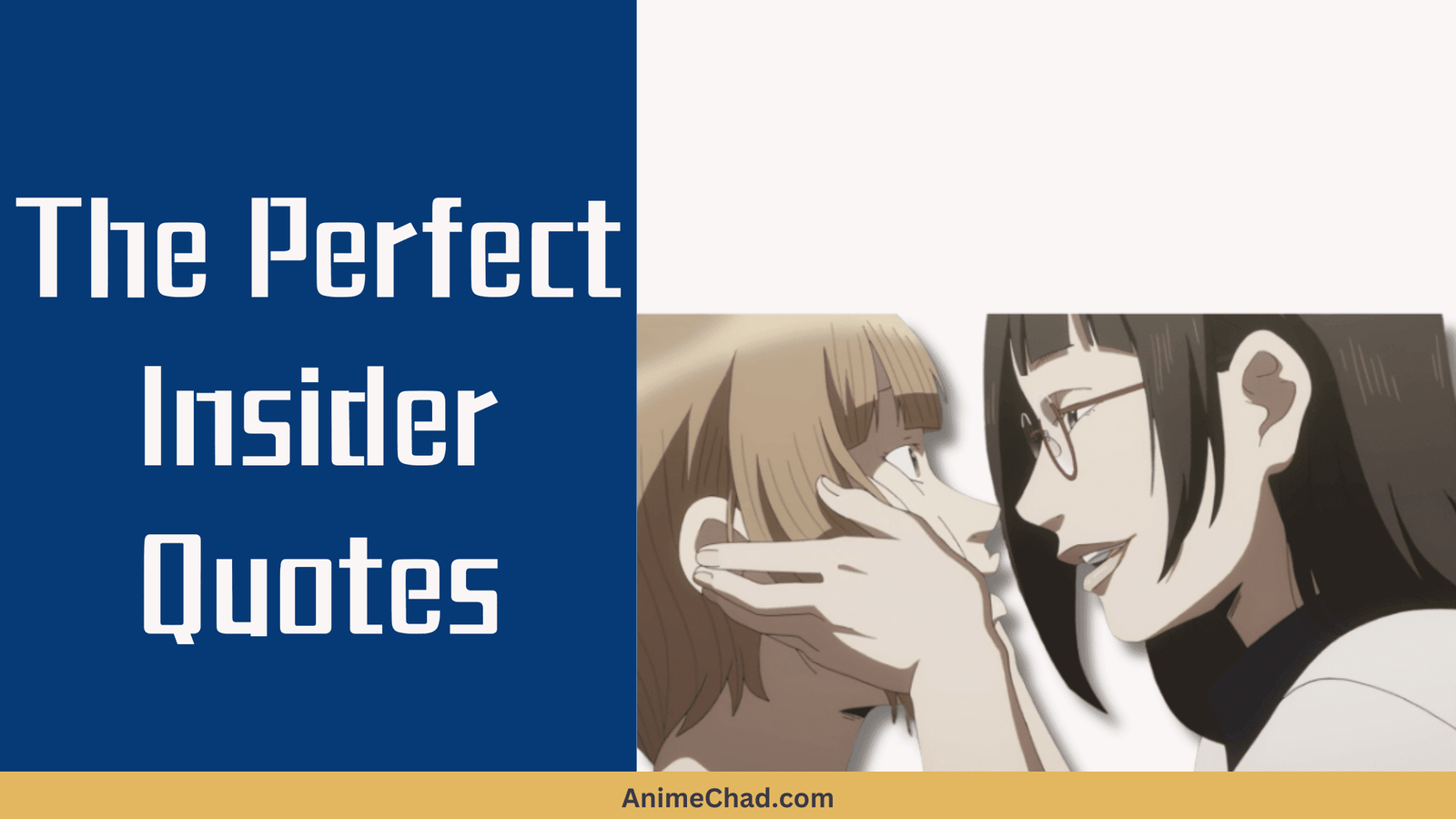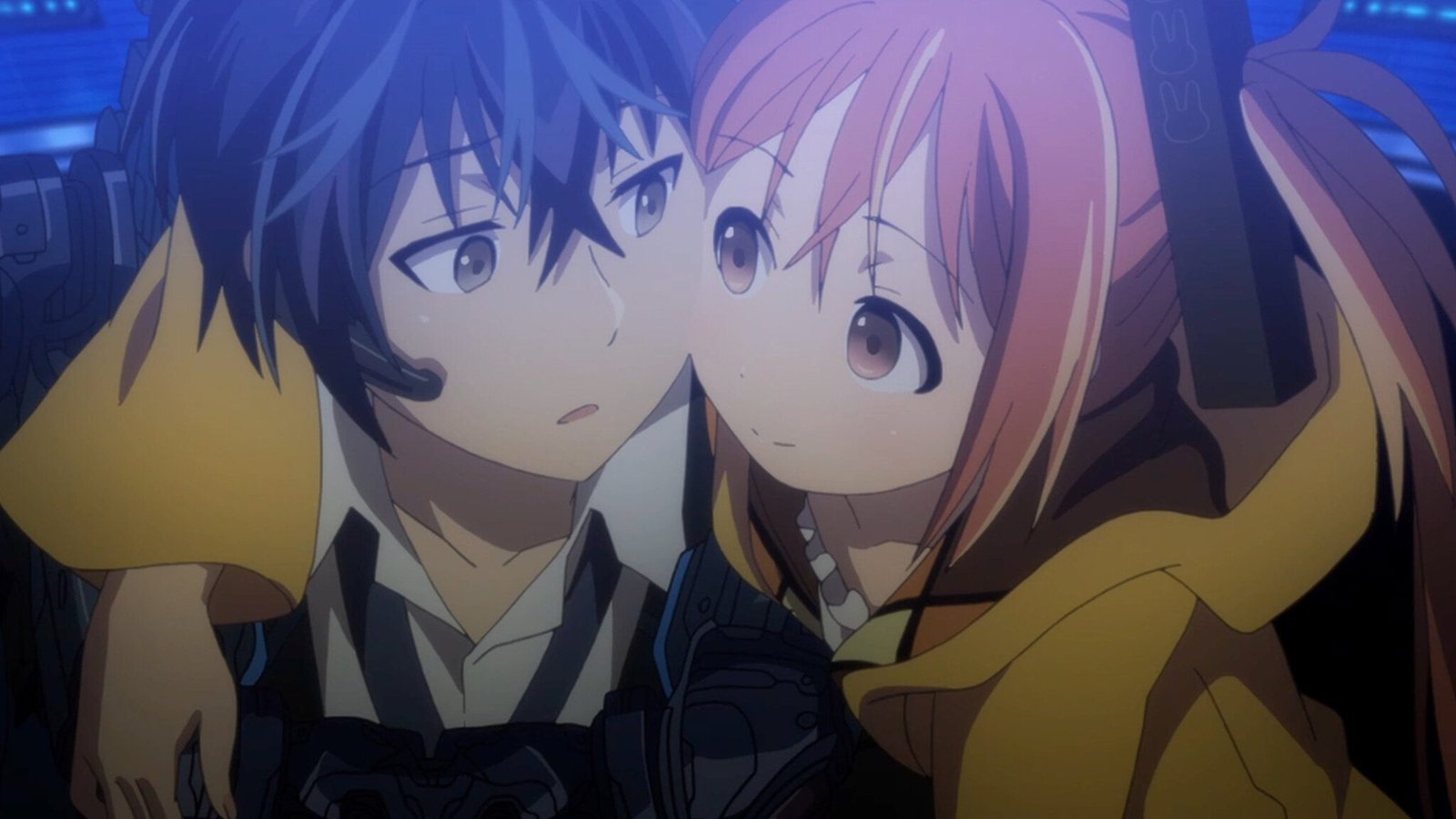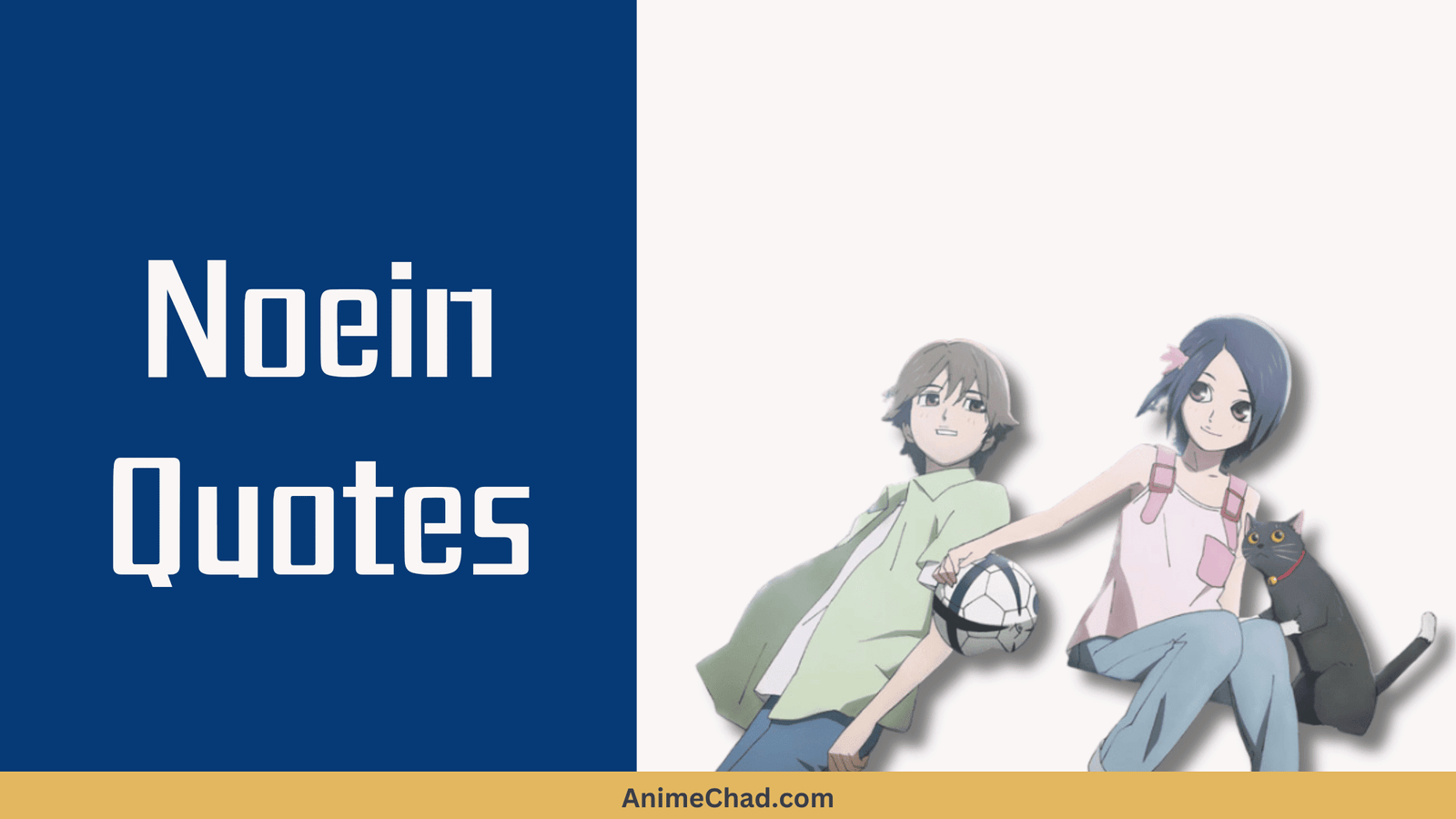Many dark hero anime explore complex characters who walk the line between good and evil while grappling with internal and external conflicts. These series delve into profound themes such as sacrifice, morality, justice, and human nature.
This collection of 25 carefully chosen quotes captures pivotal moments, emotional depth, and the philosophical struggles that define these unforgettable dark heroes.
The world isn’t perfect. But it’s there for us, doing the best it can… That’s the kind of world I want to live in
(Attack on Titan, Season 3, Episode 17 “Hero”)
Eren Yeager
Reflects Eren’s evolving perspective on the harsh reality and his desire for a better world amid chaos and loss.
It’s not the face that makes someone a monster; it’s the choices they make with their lives
(Fullmetal Alchemist: Brotherhood, Episode 4 “An Alchemist’s Anguish”)
Roy Mustang
Highlights core theme of human morality and personal accountability beyond appearances.
Power comes in response to a need, not a desire. You have to create that need
(Death Note, Episode 25 “Silence”)
Light Yagami
Demonstrates Light’s chilling and calculated mindset on power and control.
To protect and maintain peace, I will become evil
(Code Geass, Episode 22 “Bloodstained Euphie”)
Lelouch Lamperouge
Expresses Lelouch’s moral ambiguity and the high cost of his revolutionary vision.
If you can’t find a reason to fight, then you shouldn’t be on the battlefield
(Black Lagoon, Episode 6 “Fool on the Hill”)
Revy
Captures Revy’s ruthless pragmatism shaped by a violent past.
Killing means taking, and taking means losing everything you wanted to protect
(Psycho-Pass, Season 1, Episode 11 “Saint’s Supper”)
Shinya Kogami
Shows Kogami’s internal conflict as an enforcer balancing justice and personal loss.
Live for yourself, but live with the weight of others’ hopes
(Death Parade, Episode 12 “Game Over”)
Decim
Explores theme of responsibility in darker human experiences.
The only way to truly escape the past is to face it head-on
(Dorohedoro, Episode 12 “Land of the Hole”)
Kaiman
Underlines Kaiman’s journey of self-discovery and revenge.
Pain is inevitable, suffering is optional
(Naruto Shippuden, Episode 165 “Nine-Tails”)
Pain (Nagato)
Philosophical reflection on suffering and leadership that shapes a tragic antagonist.
I am the nightmare that neither you nor the world is prepared for
(Tokyo Ghoul, Season 1, Episode 12 “Ghoul”)
Kaneki Ken
Embodies Kaneki’s transformation and the horror of his dual existence.
Truth is a weapon. It never cares about your feelings
(Samurai Champloo, Episode 22 “Battlecry”)
Mugen
Shows Mugen’s raw edge and philosophical detachment.
Heroes aren’t those who never fail, but those who refuse to quit
(My Hero Academia, Episode 63 “One For All”)
Izuku Midoriya
Balances hope and grit against overwhelming darkness.
Justice is a double-edged sword; its wielder always risks losing their way
(Ergo Proxy, Episode 21 “Parallax”)
Vincent Law
Highlights the existential ambiguity faced by protagonists.
Fear keeps people alive; hate keeps people moving
(Elfen Lied, Episode 13 “Evolution”)
Lucy/Nyu
Reveals the duality of human emotion driving the story’s brutality.
Every scar tells the story of a battle survived, not a weakness
(Black Clover, Episode 170 “Raw Clarity”)
Asta
Emphasizes endurance and growth through hardship.
Sometimes to save others, you must be the villain they fear
(Attack on Titan, Season 4, Episode 16 “Above and Below”)
Mikasa Ackerman
Shows sacrifice and the burden of choices that blur heroism.
I am not a god to forgive you—I am your reckoning
(Demon Slayer, Episode 19 “Hinokami”)
Tanjiro Kamado
Underlines Tanjiro’s fierce resolve tempered by empathy.
When darkness rises, don’t run from it—understand it
(Monster, Episode 53 “The Boy Who Came Back”)
Dr. Tenma
Explores confronting inner demons and moral complexity.
Every end is just a new beginning disguised in shadows
(Berserk, Episode 25 “The Lady of the Lake”)
Guts
Symbolizes relentless resilience despite overwhelming darkness.
Hope and despair are two sides of the same coin
(Neon Genesis Evangelion, Episode 26 “Take Care of Yourself”)
Shinji Ikari
Reflects the psychological battle within the hero’s mind.
The world that forgot how to smile will tear itself apart
(Erased, Episode 12 “The Scenery in Front of You”)
Satoru Fujinuma
Focuses on healing through confronting past trauma.
We are all monsters. The difference is how we use our darkness
(Dorohedoro, Episode 10 “Constellation Boy”)
Noi
Demonstrates characters’ acceptance and control of their darker sides.
Sometimes the strongest act of love is letting go
(Akame ga Kill!, Episode 24 “Zero”)
Tatsumi
Ties sacrifice to love’s painful complexity in a dark world.
It’s not about winning or losing; it’s about how much you’re willing to sacrifice
(Claymore, Episode 1 “Just Destroy Them All”)
Clare
Defines the harsh reality behind warriors’ battles.
I will carve a path to freedom even if the path is stained red with blood
(Black Lagoon, Episode 12 “The Bloody Field”)
Dutch
Represents a relentless quest for freedom amid violence.

